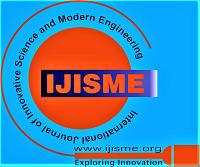Abstract
Lightweight concrete (LWC) is a specific type of concrete developed when the need to reduce dead load becomes relevant in structures, such as high-rise buildings and bridge decks. This type of concrete can offer a good strength to weight ratio, good insulating properties and costs benefits due to reduced sections of bearing elements in a structure (columns, beams, foundations). It is commonly made using artificial lightweight aggregates like expanded shales and clays; however, the manufacturing process of those aggregates is linked to a great amount of energy consumption, natural resources depletion, and large amount of emission of CO2 gas in the environment, and finally high costs. This experimental study investigated the use of volcanic scoria aggregates from Lukenya in Kenya to produce structural lightweight aggregates concrete (SLWAC). Scoria stones were collected, crushed into particle sizes 4.75-19 mm, conforming to the grading requirements of ASTM C330, and used to produce lightweight concrete designed using the three different methods prescribed by the standard ACI 211.2-98 for proportioning structural lightweight concrete. The design strength was 30 MPa and the aim was not only to investigate the feasibility of producing structural lightweight concrete with locally available scoria aggregates, but also to find out the best mix design approach out of the three prescribed by the standard, namely the weight method, the absolute volume method and the damp loose method. Physical and mechanical tests were carried out on the scoria aggregates to classify them as suitable for structural lightweight concrete production. Similar tests were also carried out on the lightweight concrete. The results showed that the absolute volume method of mix design was the one giving the best results as regards to the dry density, the slump, and the strengths (compressive, splitting tensile and flexural strength); This lead to the conclusion that volcanic scoria can be used as an alternative to artificial lightweight aggregates for structural lightweight concrete production, and proved the efficiency of the absolute volume method as the best mix design approach.
